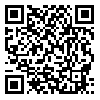BibTeX | RIS | EndNote | Medlars | ProCite | Reference Manager | RefWorks
Send citation to:
URL: http://jdn.zbmu.ac.ir/article-1-237-en.html
Introduction: Globally, diabetes is the main leading cause of morbidity, mortality, and increased health care costs. In cases where diabetes is concomitant with anxiety, depression, and sedentary lifestyle, this disease becomes more severe. The high prevalence of psychological and behavioral problems in diabetic patients leads to poor disease prognosis. Accordingly, we aimed to predict type II diabetes based on anxiety, depression, and lifestyle in healthy and involved family members by applying discriminant analysis
Materials and Methods: This correlational study was conducted on 90 subjects (41 diabetic and 49 healthy individuals) selected through purposive sampling method from Taban Diabetes Clinic in 2017, Tehran, Iran. The included data collection tools were Meaning in Life Questionnaire (MLQ), Beck and Epstein Anxiety Inventory (1993), Lali, Abedi, and Kajbaf Life Style Questionnaire (2012), and Beck Depression Inventory (1961). Data analysis was performed using discriminant analysis.
Results: The results of the discriminant analysis revealed that depression can predict diabetes. Discriminant analysis with 65.6% true prediction could classify the participants into two groups of non-involved and diabetic members of a family.
Conclusion: To enhance patient adaptation and psychological health, it seems essential to classify the involved and healthy family members based on the common psychological problems such as depression and implement strategies such as stress-management training and depression treatment.
Received: 2017/04/6 | Accepted: 2017/05/27 | Published: 2017/06/20
| Rights and permissions | |
 |
This work is licensed under a Creative Commons Attribution-NonCommercial 4.0 International License. |




